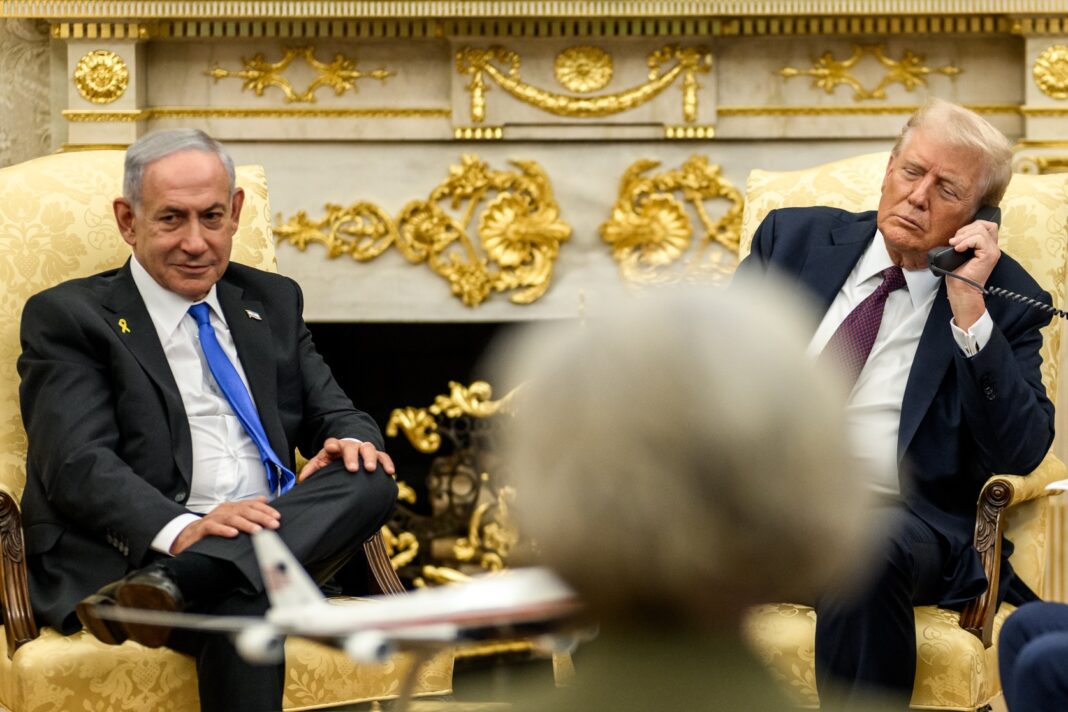President Donald Trump’s 20-point proposal to end the Gaza war won swift endorsements from Arab partners and European leaders on Monday, even as questions persisted over whether Israel would accept a pathway to Palestinian statehood alongside security guarantees.
The Palestinian Authority, which administers parts of the occupied West Bank, welcomed Trump’s “sincere and determined efforts” to stop the fighting and stabilize Gaza, according to an official statement. Eight key regional governments—Saudi Arabia, Jordan, the United Arab Emirates, Indonesia, Pakistan, Turkey, Qatar and Egypt—jointly praised the initiative and urged that Gaza be fully integrated with the West Bank in a unified Palestinian state, according to their joint communiqué.
European capitals also encouraged the push. Germany, Italy, France and the United Kingdom urged all sides to seize the opening, while European Council President António Costa called on the parties to “give peace a genuine chance,” according to their statements posted on X.
European Commission President Ursula von der Leyen welcomed Trump’s “commitment” to end the war and said the European Union “stands ready to contribute,” reiterating the bloc’s view that a two-state solution remains the only viable path to a durable peace, according to her post on X.
In Berlin, Chancellor Friedrich Merz endorsed the plan as the best route to halt the conflict and pledged that Germany is prepared to make a concrete contribution to implementation, according to his spokesperson. “Now Hamas must also agree to it and pave the way for peace,” the spokesperson said, adding that Israel’s support for the proposal would be a significant step forward.
Whether Israel will accept the plan’s political horizon remains uncertain. Prime Minister Benjamin Netanyahu told the U.N. General Assembly last week that he would not accept what he called a “terror state” next to Israel, dismissing such an outcome as “sheer madness,” according to his speech. Members of his cabinet have also vowed to “bury the idea of a Palestinian state” by expanding settlements in the West Bank, according to recent statements. Although Trump unveiled the proposal alongside Netanyahu at the White House, the Israeli government has not said whether it would agree to a Palestinian state as part of the package.
Turkey, a staunch critic of Israel’s two-year campaign in Gaza, praised Trump’s “leadership” and said it would contribute to an outcome that is “just and lasting” for all sides, according to President Recep Tayyip Erdogan’s post on X. Ankara has suspended trade with Israel and repeatedly urged international action against Netanyahu’s government, which Turkey and some U.N. experts have described as committing “genocide”—a characterization Israel rejects.
On Monday, President Donald Trump unveiled a step-by-step proposal to halt fighting in Gaza, secure the return of hostages, and rebuild the territory under a temporary technocratic administration with international oversight.
Trump’s plan centers on a hostage-for-prisoners exchange; the disarmament and removal of Hamas from power; and a transitional civil administration in Gaza that excludes both Hamas and the Palestinian Authority, according to the proposal. The framework calls for a halt to Israeli military operations, the handover of any captured territory, and arrangements to ensure humanitarian agencies can move aid into Gaza without obstruction. It sketches a pathway for Gaza’s reconstruction and governance while setting security conditions intended to prevent renewed cross-border attacks, according to officials outlining the plan.
Netanyahu, speaking alongside Trump, stressed that Gaza must be “demilitarized” and that Israel would retain security responsibility, including a perimeter, “for the foreseeable future,” as quoted in his remarks. He warned that if Hamas rejects the plan or seeks to counter it, Israel would “finish the job” on its own. “This can be done the easy way, or it can be done the hard way, but it will be done,” he said. Trump, for his part, urged Palestinians to “take responsibility for their destiny” and push for the deal’s acceptance, according to his remarks.
The political path will probably depend on three things: if Hamas will give up its weapons and power; if Israel will agree to a plan that leads to a recognized Palestinian state; and if governments in the region and the West can provide the security, money, and oversight needed to make a transitional authority work. According to their declarations, European officials have said they are ready to use their resources, while Arab states have called for unification between Gaza and the West Bank as a necessity for long-term stability..
Even with early endorsements, the road ahead is fraught. Israeli leaders have long argued that any Palestinian state must not jeopardize Israel’s security, while Palestinian leaders insist that reconstruction and normal life in Gaza are impossible without a credible political horizon. The sequencing of prisoner releases, the verification of demilitarization and the design of an interim administration will test trust among sworn adversaries. The region’s backers say those hurdles are precisely why a coordinated plan—one that pairs concrete security measures with a clear end state—deserves a serious try now.
For the moment, momentum rests on whether the parties will move from public support to detailed commitments. As European officials put it, the chance to stop the war and chart Gaza’s future is on the table; the question is whether those with the power to end it will take it, according to their statements.
Follow Virginia Times for regular news updates. Stay informed with the latest headlines, breaking stories, and in-depth reporting from around the world.
A global media for the latest news, entertainment, music fashion, and more.














